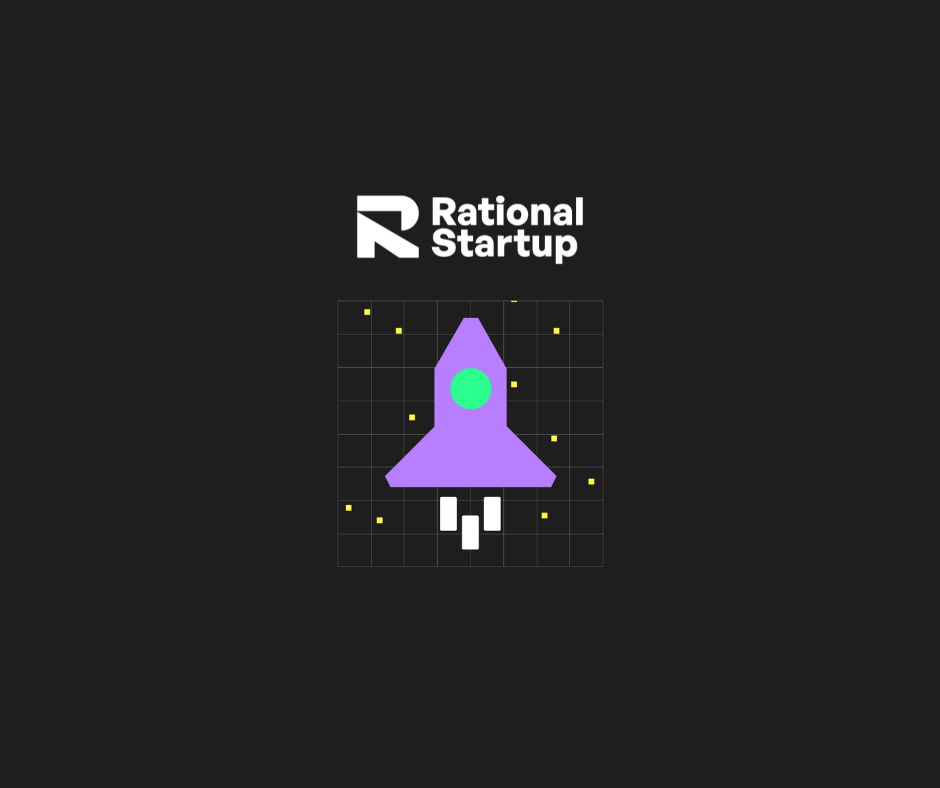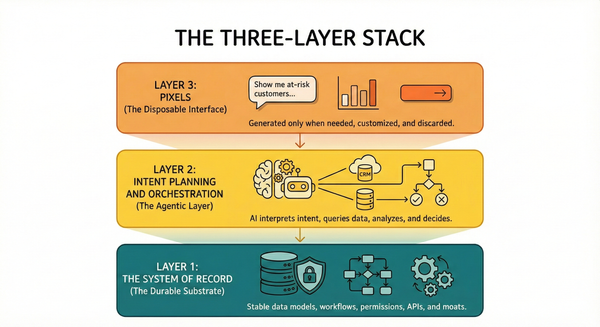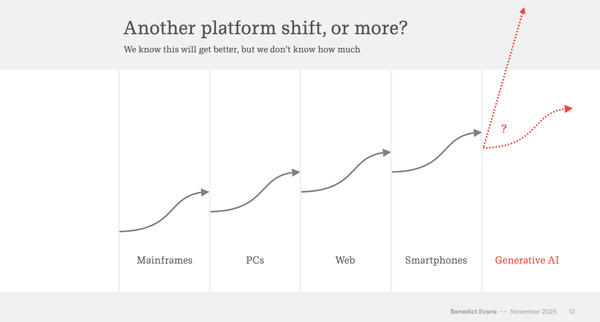Beyond Lean: A Systematic Approach to Startup Success
The Rational Startup Method helps founders and teams take ideas to product-market fit. After years of building, failing, and succeeding, I developed what I call the Rational Startup methodology. It's a systematic framework for evidence-based tech innovation.

I've watched hundreds of startups fail. Not from lack of passion, brilliant ideas, or hard work. They failed because they built products nobody wanted.
After years of building startups and working with founders and product teams across different industries, I've seen the same pattern repeat: enthusiastic founders rush to build, burn through capital, and wonder why customers don't care.
The problem isn't effort. It's approach.
The Real Problem: Solution Bias Rules Everything
Most founders suffer from solution bias. They fall in love with their idea and assume others will too. This leads to what I call "build first, hope later" syndrome.
You see it everywhere:
- Founders who spend months perfecting features nobody asked for
- Teams that launch MVPs without validating the underlying problem
- Startups that pivot repeatedly because they never understood their market
Even methodologies like Lean Startup get misunderstood. Teams latch onto "build-measure-learn" and MVP creation while skipping the discovery phase entirely. They're optimizing delivery while ignoring validation.
It's like booking a venue and catering before confirming anyone's coming.
Why Popular Approaches Fall Short
Don't get me wrong—Lean Startup principles are solid. The issue is execution. Most frameworks tell you WHAT to do but leave out HOW to do it properly.
"Validate your idea." But how do you model what needs validating across market, product, and business dimensions?
"Learn fast." Sure, but how do you systematically explore, experiment, and exploit opportunities?
"Stay focused." Great advice, but how do you identify which stage you're at and what milestone comes next?
These gaps leave founders guessing. They have great startup advice and principles but no guidance on systematic execution. Result? Failed startups with founders who swear they "followed the best advice."
Enter the Rational Startup Framework
After years of building, failing, and succeeding, I developed what I call the Rational Startup methodology. It's a systematic framework for evidence-based tech innovation.
Instead of hoping your idea works, you prove it will work before investing heavily.
Here's how it differs from everything else out there:
1. Complete Framework, No Gaps
Most approaches give you fragments. The Rational Startup methodology provides a complete system that answers the fundamental questions every startup faces:
- The WHAT: Rational Canvas - Model your startup across Market, Product, and Business dimensions while tracking assumptions and learning
- The HOW: Rational Cycles - Execute systematic cycles to Explore problems, Experiment with solutions, and Exploit validated opportunities
- The WHEN: Rational Journey - Identify clear milestones and aspects to guide your startup's progression
- The WHO: Rational Team - Balance team perspectives and ensure proper risk management across all dimensions (market, product, and business)
- The WHERE: Rational Quadrant - Assess your current execution position and determine next steps
No aspect gets skipped. No critical questions go unanswered.
2. Evidence-Based Decision Making
Every decision relies on data, not opinions. You don't build features because they seem cool. You build them because customers demonstrated they'll pay for them.
Instead of jumping straight to Minimum Viable Products, the Rational Startup uses Minimum Viable Experiments first—faster, cheaper ways to test hypotheses before writing code. MVEs give you answers in days, not months, and cost dollars, not thousands. Once you have solid evidence, then you build your MVP with confidence.
This isn't about being slow or bureaucratic. It's about being smart with your resources.
3. Risk-Focused Approach
The methodology systematically identifies your highest-risk assumptions and tests them first. Why spend six months building a product if you can disprove the market need in six days?
Risk reduction becomes your primary focus, not feature development.
4. Self-Correcting System
The framework includes built-in diagnostics. You can assess your progress, identify execution gaps, and course-correct before problems compound.
It's also accumulative—each experiment builds on previous learning. Your decision-making improves over time because you're collecting better data.
Real-World Impact
I've used this methodology to build products and guide startups across industries. The results speak for themselves:
- Higher validation rates before development begins
- Lower burn rates during the discovery phase
- Faster product-market fit achievement
- More confident scaling decisions
Many of the founders I've mentored avoided costly mistakes by discovering their target market wouldn't pay their planned price point—before building anything. Others identified completely different revenue streams that became their primary business model.
These aren't lucky breaks. They're predictable outcomes when you prioritize evidence over enthusiasm.
The Path Forward
Building a startup is hard enough without failing from preventable mistakes. You don't need to guess your way to success.
The Rational Startup methodology gives you a systematic approach to innovation. It reduces uncertainty, minimizes waste, and increases your odds of building something people actually want.
Because at the end of the day, the market doesn't care how passionate you are about your idea. It only cares whether you're solving a problem it's willing to pay to fix.
Stop building what you think customers want. Start building what they've proven they'll buy.
The difference is everything.
Ready to implement evidence-based innovation in your startup? Join our community of founders and product teams using the Rational Startup methodology. Visit our website https://RationalStartups.com to access resources, frameworks, and subscribe to our newsletter for the latest insights on systematic startup success.





